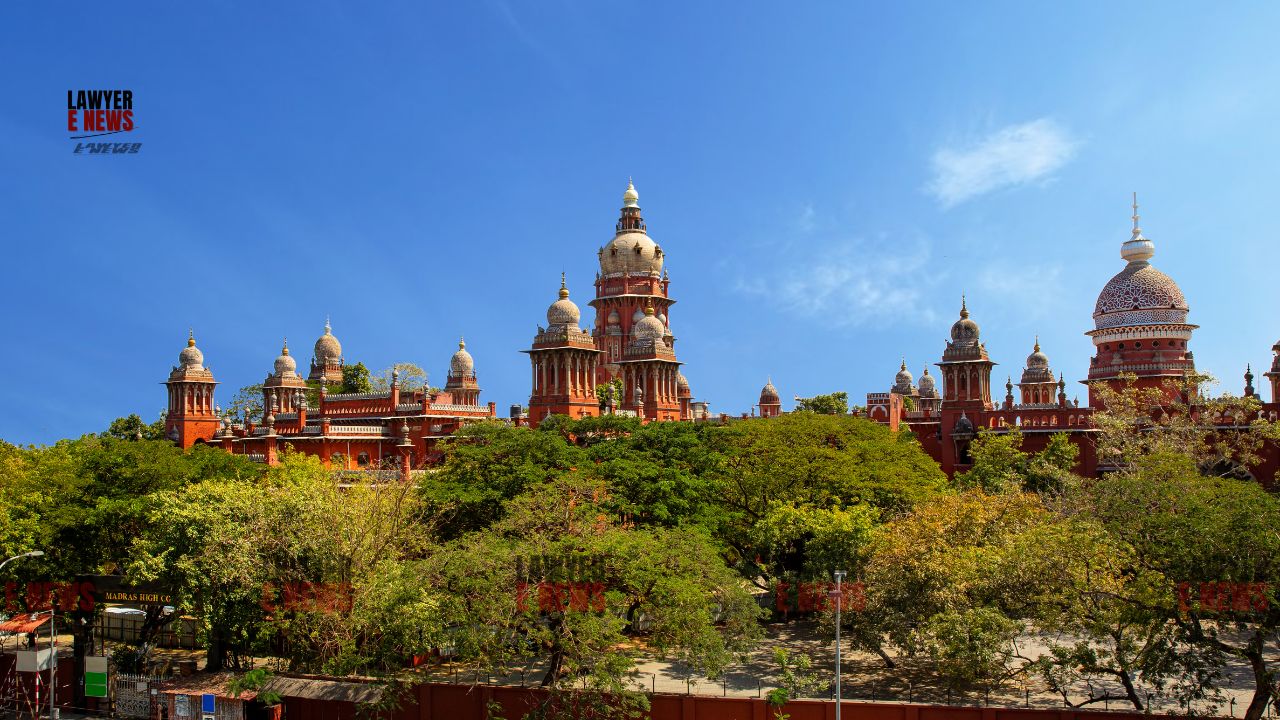-
by Admin
15 February 2026 5:35 AM



Justice M. Dhandapani emphasizes that the petitioner failed to establish a direct transaction or debt between parties, upholding trial court’s acquittal.
The Madras High Court has dismissed a criminal original petition seeking special leave to appeal against an acquittal order in a cheque bounce case under Section 138 of the Negotiable Instruments Act. Justice M. Dhandapani upheld the trial court’s decision, highlighting the lack of evidence proving a legally enforceable debt between the petitioner and respondent.
The petitioner, M. Velu, alleged that he had extended a loan of Rs. 1,75,000 to a third party, Sunil, who later introduced the respondent, S. Prakash, as someone who would discharge this debt. Prakash issued a cheque that subsequently bounced due to insufficient funds. The trial court acquitted Prakash, leading Velu to seek special leave to appeal, arguing that the presumption under Section 139 of the Negotiable Instruments Act was not properly rebutted by the respondent.
The petitioner contended that since Prakash did not dispute the issuance or signature on the cheque, the presumption under Section 139 should apply, indicating the cheque was issued to discharge a debt. However, the court noted that this presumption applies only if there is a legally enforceable debt, which was not established in this case.
The court observed that there was no direct transaction or agreement between the petitioner and the respondent. The alleged debt was between the petitioner and Sunil, with no concrete evidence showing Prakash’s legal obligation to discharge this debt. Justice Dhandapani emphasized, “The whole case of the petitioner is premised on the loan given to Sunil, with no transaction between the petitioner and the respondent.”
Justice Dhandapani underscored the importance of establishing a legally enforceable debt for the presumption under Section 139 to apply. The court stated, “The main ingredient under Section 139 is a debt or liability, which exists and has to be discharged by the respondent. However, no such debt or liability was proven between the petitioner and the respondent.”
Justice Dhandapani remarked, “Even from a bare perusal of the materials as also the deposition of P.W.1, it is evident that the respondent had not taken any loan from the petitioner. There is not even an iota of evidence to suggest any loan transaction that needed to be discharged by the respondent.”
The Madras High Court’s decision to dismiss the petition for special leave to appeal reinforces the principle that a legally enforceable debt must be established to sustain a cheque bounce case under Section 138 of the Negotiable Instruments Act. This ruling underscores the judiciary’s commitment to upholding due process and preventing undue harassment of acquitted individuals in cheque bounce cases. The judgment is anticipated to influence future cases, emphasizing the need for clear and concrete evidence of debt in such matters.
Date of Decision: 28th June 2024
